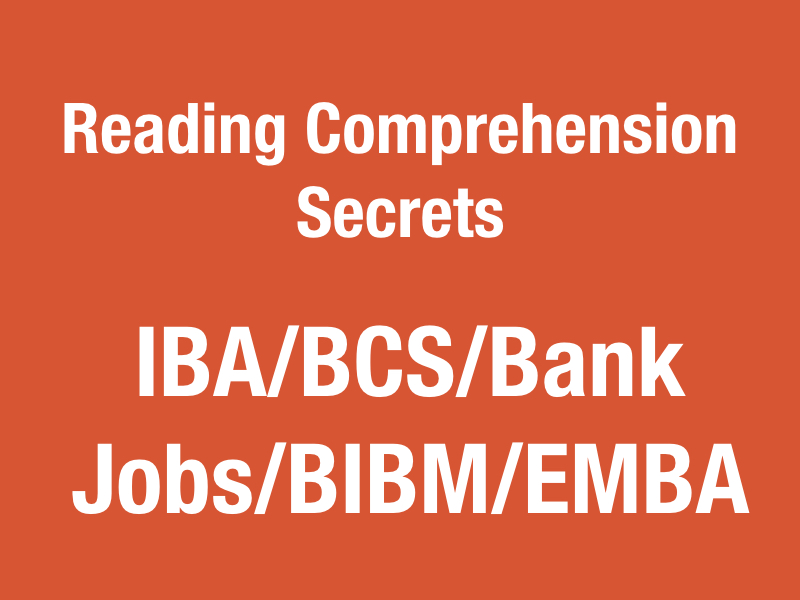Reading Comprehension carries almost 15-20% marks in the verbal section of IBA Admission Test. So gaining accuracy in this part is pretty important. For practicing comprehension, you can follow Official GMAT review. Here are some of the tips that I’d personally like to share regarding comprehension part:
- I used to read the questions first and then go to the passage. It allowed me to know in which parts of the passage I have to emphasize more and read carefully and in which parts I can increase my reading speed and cut through. Thus, it took less time to finish my task. For example, let’s assume a question says, “What did the author mean by the term ‘pragmatic approach’ in the passage?” Now, I know the question and so when I will go to the passage, I’ll be alert about the term ‘pragmatic approach’ and whenever I see this term in the passage, I’ll be aware of the answer to my question. If the line number of the term is given to you in the question, you can just go to that line and underline that particular term so that when you read the passage, you will know where you have to concentrate more. But again, these techniques vary person to person and if you think by reading the passage before the questions can save your time, you should do that. It’s completely up to you which technique you’d choose. So practice more and also experiment with different techniques and see which one is most suitable for you.
- Don’t bring in any outside knowledge while answering the questions. Remember, the passage is all you have to find the answers. Your knowledge and perception about the world don’t matter at all in this case.
- Do eliminate options while answering the questions. It will increase your probability of scoring more.
- To find out the main idea/purpose of the passage/a particular paragraph, concentrate more on the first and last sentence of that portion. Chances are pretty high that your answer is there!
- There are some questions that will ask you to infer something. This means that you have to find out something that the author has not directly stated in the passage. But this also doesn’t give you the permission to go beyond the passage! No, you can’t do that. If you do that, you’ll be assuming. There is a huge difference between inferring and assuming. When you infer, you make an inference based on the information in the passage. But when you assume, you bring in all your perceptions, biases and external information which do not relate to the given passage. Here you have to understand what the author is suggesting indirectly or what points he has developed indirectly. Therefore, while answering these inference questions, you can eliminate options which are directly stated in the passage. I used to follow this technique to avoid complication!
- If you see any extreme words like never, always, completely in the options or even any statements/adjectives which judge a particular system/process/person (words like best, worst, controversial etc), chances are pretty high that those will not be the answers.
- Logical Keywords or Direction Indicators are the words which tell us on which direction the author’s argument is going. Keep an eye out for these words as you read. Many of these keywords fall into two groups: those that indicate continuity (e.g. furthermore, in addition, also), and those that indicate contrast (e.g. despite, but, nevertheless).
- Concentrate on the context of the passage. Whenever a question tells you to go to a particular line, do read that line carefully and read one or two lines before and after that sentence so that you don’t lose the context.
- DON’T PANIC! Yes, there is pressure and uncertainty. But whenever you feel burdened by these, don’t let your fear take over your brain. Take a deep breath, have some mental break, be patient and start fresh. You can do it.
Happy preparing.






1 Comment
Shajedul Amin May 08, 2016
tanxs sire
Leave a comment